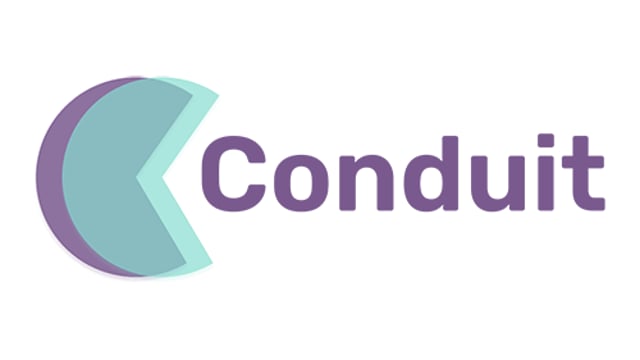
The phrase Alternative Lodging surfaced in the early 2000s as a way to describe options other than hotels. Between 2004 and 2011 industry professionals began to think that Airbnb could be a “potential disruptor to the hotel industry,” according to Hospitality Net. But vacation rentals have been around since the 1960’s.
What’s the difference? To understand the similarities and differences between hotels and vacation rentals, it’s important to clarify that Airbnb is not a vacation rental company in the same way Expedia is not a hotel company.
VR or STR? (No, not like a hotel STR report, either)
Even within the vacation rental industry, there is a terminology separating short-term rentals (STR), which are mainly in urban markets, from vacation rentals (VR), which are mainly in vacation destinations. Be wary of grouping every rental as an “Airbnb” if you want to make friends in this space.
Vacation rentals are located in destination markets, where people go to relax and escape the daily grind. Some vacation rental companies in the Outer Banks of North Carolina are 30 to 40 years old. They manage 30 to 3,000 homes, townhomes and condos (mostly single family homes) and maintain a staff. Their primary clients are the homeowners, not the guests. They charge a commission for management and marketing of the properties. Their brand names are prominently displayed throughout the town and the owners are known by the locals, so if someone has a party or trash gets left out, everyone knows where to direct complaints.
Airbnb is a marketplace where anyone can list a property that can be rented out, but they do not own, rent or manage any properties. Their client is the guest, not the “host.” This changes a lot about how they operate – how complaints are handled. Owners no longer need to go through a real estate agent or management company to rent out their home. If they don’t live in the same state, which is often the case, they also don’t have anyone to swing by the property to check on it or help a guest with a door code that isn’t working.
Similarities between Vacation Rentals and Hotels
Both vacation rentals and hotels want their guests to enjoy their stay and rebook directly through their websites. They both struggle with increasing costs from their tech stack and staff overhead. It’s not uncommon for their revenue managers to set pricing without talking to their sales and marketing teams, or for marketing teams to send out promotional emails before consulting with revenue managers.
Other Ways Vacation Rentals are Similar to Hotels
- Operations: Trashed rooms during spring break (yes, on occasion their cleaners find cocaine, vomit, etc. when a guest checks out)
- Marketing: Competing for Google Ads with the OTAs that have bigger marketing budgets
- Guest Relations: Guests asking to be compensated because of a clogged toilet or construction next door
- Finance: “Bed taxes” and tourist taxes are paid by both vacation rentals and hotels
- Family Owned: Where applicable, handed down family operations struggle with branding, consistency and family dynamics
While the business models might be different, when it comes to family owned brands, the generational handoff looks virtually identical. Both are facing the same legacy and leadership challenges and opportunities. For example, there is a second-generation vacation rental company in Sunrive, OR with a 4.8 Google rating and approximately 100 properties, mainly single family homes. When the company was founded in 1983 the landscape and technology looked very different than it does today. The children taking over the company had to increase costs in buying software that enabled online bookings and making investments in digital marketing, upsetting the parent’s requests for higher margins. The same goes for a boutique hotel in Grenada that is in the process of handing off the reins to the son, who plans to rebuild the brand to be more upscale over the next few years in order to afford the rising cost of running the establishment.
Operational Model Differences
The biggest difference between hotels and vacation rentals is the staff to room ratio. Most vacation rentals have a 12-36 ratio of properties to staff. Some companies manage 36 vacation rentals per every one full-time staff member. They outsource most of their operations, and even their marketing, to local small businesses, but their software needs are still at a national or international level.
At the community level, local politics drive a lot of vacation rental discussion. Many property managers show up at town halls and county meetings where locals want to ban rentals. The good managers are getting lumped in with the bad ones who don’t regulate their guest’s parking or trash or noise levels.
The second biggest difference between hotels and vacation homes is likely the margins plus the onsite food and beverage component. However, there are more concierge services supporting the vacation rental guest experience than ever before. Companies like Noshable allow rental guests to have a fully stocked pantry or ready-to-heat lasagna show up at their request. Not to mention spa services, yoga instructors, and private chefs from companies like CookinGenie are leveling the playing field.
When do Airbnb’s Compete with Hotels
With data providers like AirDNA and KeyData providing reports and analysis for both vacation rentals and hotels, it depends on the location and target customer.
Additionally, the use of loyalty points is increasing competition and leveling the playing field.
Urban Market Landscape
- Guests looking for a short stay in an urban market are likely comparing a hotel to an STR, even if they are traveling for work.
- The guest’s first data point to compare is price, then amenities, then value based on the photos.
- Previously, brands made assumptions about the generational gaps when it came to who stayed in “Airbnbs” versus hotels but that is no longer the case.
Vacation Destination Markets
- There is a bigger difference between the hotel guest experience and the vacation rental guest experience in these markets.
- Guests traveling with multiple family members, groups and multi-generational travel will be more comfortable in a single family home than multiple hotel rooms – and more likely to save money this way.
- Couples or small families needing daily cleaning services, onsite food and beverage, and poolside bar service will always choose a hotel first, even if it’s more expensive.
As more guests turn to ChatGPT and other AI solutions to answer the question of “Where should I stay?” hotels and vacation rental companies have less control over the options being evaluated. It will be important for all operators to communicate clear benefits and unique differentiators that can be understood by humans and bots alike.
For hospitality consultants advising on competitive positioning, understanding these operational differences will change how you approach market analysis and strategic recommendations.








